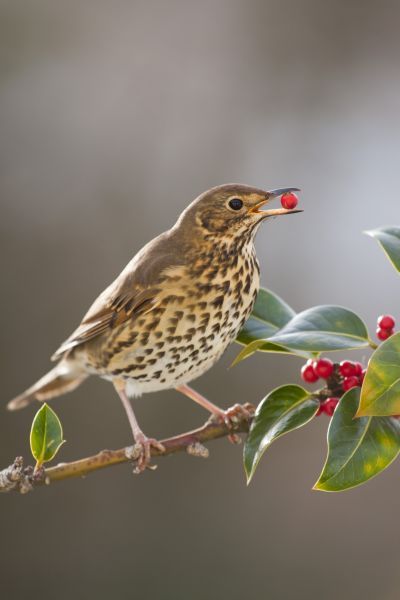Migratory birds can help plants cope with global warming by spreading seeds over long distances and into new, suitable areas.
However, a paper recently published in "Nature", co-authored by Dr. Przemysław Kurek of the Faculty of Biology at Adam Mickiewicz University, Poznań, shows that the vast majority of plants in European woodlands are dispersed by birds migrating to warmer latitudes in the south, while only a small proportion are dispersed by those migrating north towards cooler latitudes.
This makes it difficult for plants to adapt to current climate change scenarios.
As a result of global warming, the optimal climatic conditions for many species are shifting to cooler areas, forcing a redistribution of life on Earth. Mobility allows many animals to reach areas with a new, suitable climate. However, plants cannot move, so spreading their seeds over long distances is essential for them to change their distribution and adapt to climate change.
Song thrush eating a holly berry, photo by David Chapman
Know more about this project by watching the clip.
The study was conducted by 18 researchers from 13 European institutions. To check the results read the article in "Nature" - available here


